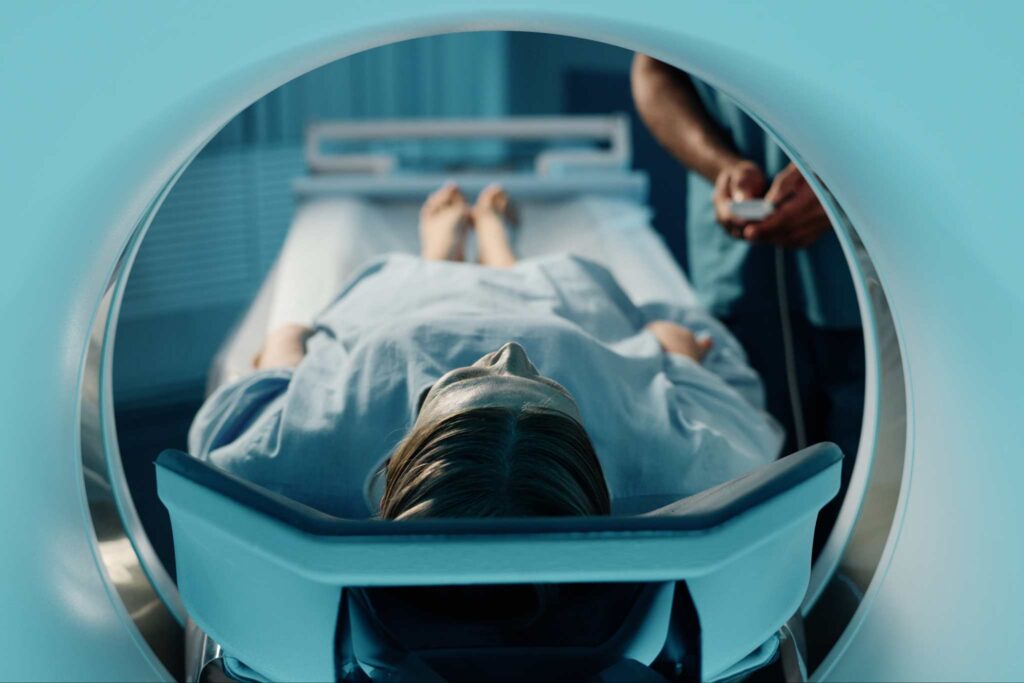Todos hemos experimentado alguna vez un nervio pinzado: ¿Conoces esa sensación cuando llevas demasiado tiempo sentado en un mismo sitio y se te duerme el pie? Puede que llames a esta experiencia “alfileres y agujas” o que digas “¡se me ha dormido el pie!”. Un nervio pinzado se produce cuando hay demasiada presión sobre un nervio, y al igual que cuando se te “duerme” el pie, moverte un poco puede aliviar la presión sobre el nervio y el hormigueo desaparece.
Pero, ¿qué ocurre cuando esas sensaciones duran mucho tiempo o no desaparecen? Los casos más graves de pinzamiento de un nervio pueden provocarte dolor y causarte molestias mientras sigues con tu día a día. Una lesión producida por un accidente de coche puede provocar un pinzamiento nervioso, sobre todo si la lesión se produce en el cuello o la espalda. Esto es lo que debes hacer si crees que tienes un nervio pinzado, para no dejarlo sin tratar.
Signos de que puedes tener un nervio pinzado
Entumecimiento y hormigueo
El signo más frecuente de que tienes un nervio pinzado es el entumecimiento seguido de una sensación de hormigueo, a veces llamada “alfileres y agujas”. El entumecimiento y el hormigueo describen mejor esa sensación cuando se te “duerme” el pie o la pierna. Cuando tienes un nervio pinzado que necesita atención médica, puedes notar que este entumecimiento y hormigueo aparecen y desaparecen, o incluso puede que estén ahí todo el tiempo.
Dolor
Algunas personas describen un “dolor ardiente” o molestias con un nervio pinzado. Este tipo de dolor suele producirse justo cerca del lugar donde se pinza el nervio y puede incluso irradiarse hacia fuera. Un ejemplo de dolor con un nervio pinzado podría ser cuando un nervio pinzado en el brazo provoca un dolor punzante que baja por la mano y los dedos.
Espasmos musculares
Puedes notar que parte del músculo del brazo o de la pierna se contrae o “aletea” sin que lo muevas. Son tipos de espasmos musculares que pueden producirse cuando tienes un nervio pinzado. Quizá no puedas verlo, pero puedes sentirlo. Tus músculos también pueden sentirse débiles.
Amplitud de movimiento limitada
Este signo de un nervio pinzado puede parecer aterrador, porque puedes tener la sensación de que no puedes mover parte del cuerpo. Piensa en la última vez que se te “durmió” el pie. Si intentaste ponerte de pie demasiado deprisa, habrás notado que tu pie no quería moverse ni doblarse como de costumbre. Una vez que cesó el hormigueo, pudiste volver a mover el pie.
Causas frecuentes de un pinzamiento nervioso
Latigazo cervical
El latigazo cervical es una lesión provocada por un accidente de coche que puede afectar a la cabeza, el cuello, la espalda y los hombros. Cuando sufres un latigazo cervical, la cabeza y el cuello se sacuden violentamente hacia delante y hacia atrás, lo que puede dañar la médula espinal y los músculos de la zona. Si sufres hinchazón con el latigazo cervical, también puede ejercer presión sobre los nervios y provocar un pinzamiento nervioso.
Esguince de cuello y espalda
Un esguince de cuello o espalda también es un tipo de lesión por accidente de coche que puede provocar un pinzamiento nervioso. Cuando alguno de los tejidos blandos o ligamentos de tu cuello se estira demasiado o incluso se desgarra, puede provocar que las cosas se salgan de su sitio y se produzca hinchazón. Tienes muchos nervios en el cuello y la espalda, y pueden pinzarse fácilmente durante una lesión.
Hernia discal
Una hernia discal, también llamada “hernia discal”, es un tipo de lesión que también se produce en un accidente de coche, pero también puede ocurrir al levantar objetos pesados o durante una actividad física extenuante. Si un disco de la columna se sale de su sitio, puede ejercer presión sobre un nervio cercano y provocar un pinzamiento nervioso.
Tratamientos sencillos para un nervio pinzado
A veces un nervio pinzado desaparece por sí solo, como cuando se te “duerme” la pierna y en cuanto te mueves un poco deja de hormiguear. Sin embargo, cuando los síntomas no desaparecen, puede que sea el momento de hablar con tu médico para el tratamiento del nervio pinzado. Un quiropráctico puede hacer un ajuste para ayudar a realinear tu columna y aliviar cualquier presión que pueda estar causada por un disco o vértebra fuera de su sitio. Tu médico también puede recomendarte tratamientos caseros, sobre todo cuando tengas espasmos musculares, como alternar hielo y calor o utilizar un masajeador manual en la zona. También hay estiramientos y movimientos sencillos que puedes hacer para ayudar a aflojar los músculos.
La mayoría de la gente no acaba necesitando cirugía o una intervención médica grave por un nervio pinzado. Una forma de asegurarte de que tu nervio pinzado no se convierta en algo más grave es hablar con tu médico. En Ortopedia AICA, puedes hablar con un quiropráctico, un médico ortopédico, un neurólogo o incluso un fisioterapeuta, para saber más sobre cómo deshacerte de un nervio pinzado de forma segura y rápida. Ponte en contacto con nosotros hoy mismo.





